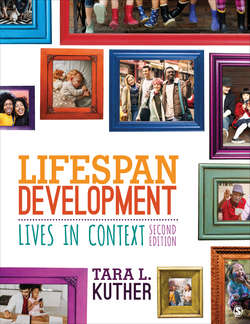Читать книгу Lifespan Development - Tara L. Kuther - Страница 51
На сайте Литреса книга снята с продажи.
What Do You Think?
Оглавление1 How would you describe North American culture? Can you identify aspects of North American culture that describe most, if not all, people who live there? Are there aspects of culture in which people or subgroups of people differ?
2 What subcultures can you identify in your own neighborhood, state, or region of the country? What characterizes each of these subcultures?
3 Consider your own experience. With which culture or subculture do you identify? How much of a role do you think your cultural membership has had in your own development?
Take a moment to think about what role larger historical events have played in your development. For example, consider the costly and deadly 2017 Hurricanes Harvey, Irma, and Maria. The mass flooding destroyed homes and businesses in Texas, the southeastern United States, and Puerto Rico and killed thousands of people. Other examples of historical events include the terrorist attacks of September 11, 2001; the election of the first African American president of the United States in 2008; the school shooting in Newtown, Connecticut, in 2012; and the legalization of same-sex marriage in 2015. How have historical events influenced you and those around you? Can you identify ways in which, because of historical events, your cohort may differ from your parents’ cohort?
Whereas age-graded and history-graded influences are common to all people or all members of a cohort, individuals also have experiences that are unique to them. Nonnormative influences are experiences or events that happen to a person or a few people. Examples of nonnormative influences include experiencing the death of a parent in childhood, widowhood in early adulthood, winning the lottery, or illness. Nonnormative events are not predictable and are not easily studied, as they are not experienced by most peopl—and the nature of nonnormative events varies widely. With age, nonnormative influences become more powerful determinants of development.
